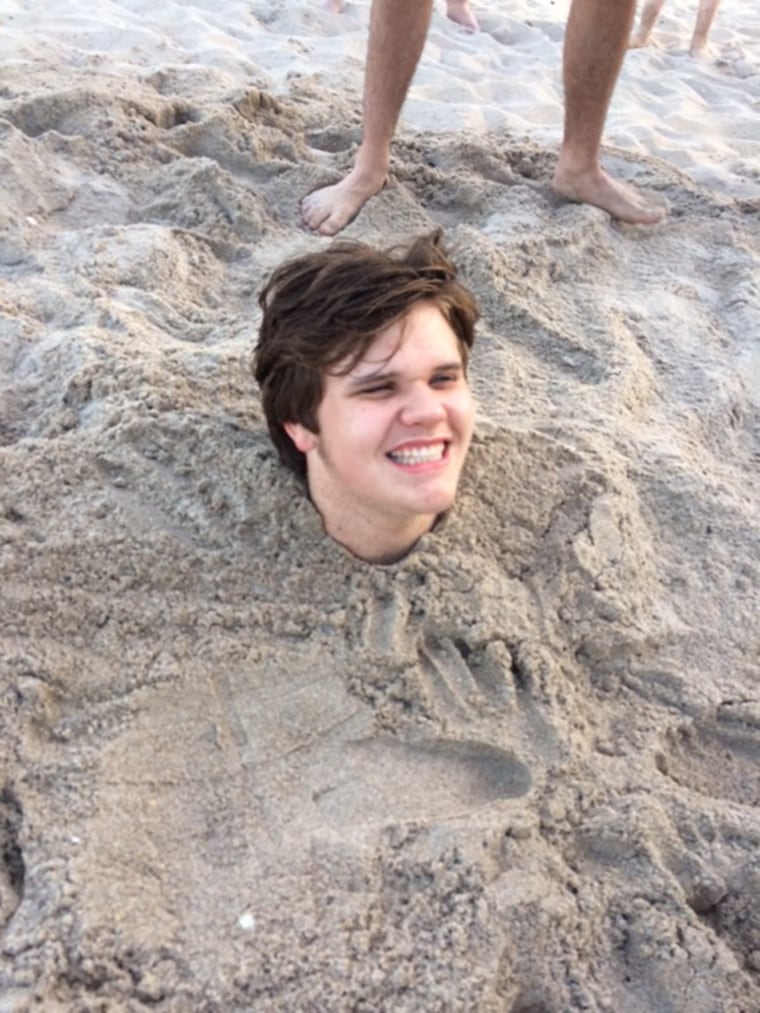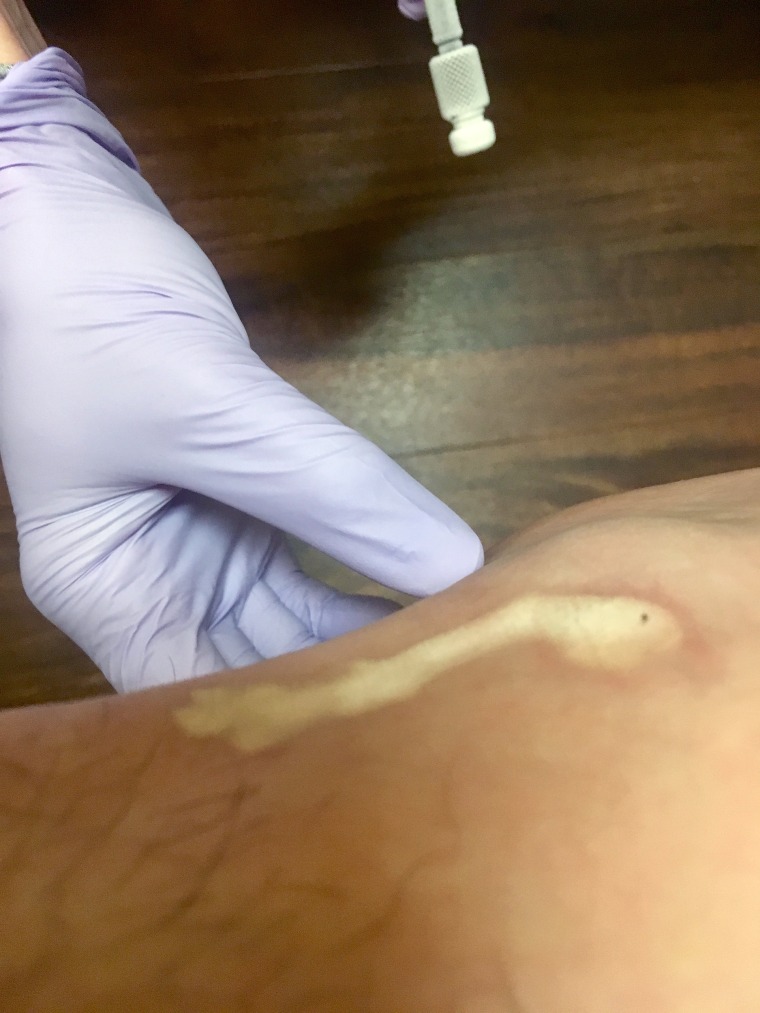After a teen contracted hookworm at a Florida beach, his family is speaking out to raise awareness about the parasite.
“This has been a nightmare, an absolute nightmare. He is going to be permanently scarred,” Kelli Dumas, of Memphis, told TODAY.

The family’s ordeal started more than a month ago when Michael, 17, visited Pompano Beach, Florida, for a mission trip. One day, he and his friends took a break and visited the beach, where they dug a hole in the sand. After some cajoling, Michael hopped into it and they buried him up to his neck. One of the chaperones snapped a picture of the teen laughing in the sand and sent it to Dumas with the message: “I want you to know he volunteered for this.”
In the middle of the night, Michael woke up feeling itchy so he took a shower. Later, his ears began hurting and he figured he had an ear infection. Then Michael developed a new, unusual symptom: red raised dots that turned into an itchy rash covering his feet and calves.
“The rash was really bad on both feet,” Dumas explained.
She took Michael back to the pediatrician on July 6, to run some tests, and by July 10, they had a diagnosis: cutaneous larva migrans. This is a hookworm infection from parasites that live in dogs or cats. They don’t absorb into the bloodstream so the worms thrive in skin, creating a creeping rash.
“It’s also called creeping eruption because people get an itchy rash on the foot, which is the site of penetration,” said Dr. Adam Friedman, professor of dermatology at George Washington School of Medicine, who did not treat Michael. “You can actually watch the worms migrating through the skin.”

People become infected after walking barefoot on sand or soil that is contaminated with animal feces. Luckily, it’s uncommon.
“It is pretty rare in the United States,” Dr. Alex Viehman, an infectious disease specialist at UPMC in Pittsburgh, who did not treat Michael. “You get a reaction often after the worms penetrated the skin. The body’s immune system trying to fight it.”
There’s no vaccine for hookworm, Viehman said, so avoiding the larva (which has teeth that break through intact skin) is the only way to prevent it. While uncommon here, he does urge people traveling to Sub-Saharan Africa, South America and Southeast Asia to wear shoes and long pants to protect themselves. Various types of hookworm commonly occur there.
While this type of hookworm normally dies off quickly, Michael’s infection seems to be spreading. He has taken an anti-parasitic medication and received topical liquid nitrogen to stop it. But he is still getting rashes, the sores cover his entire legs and he developed a secondary Staphylococcal infection.
“He has open, gaping wounds,” Dumas said. “He can’t put on shoes … he can’t go to football practice.”
Meanwhile, six of the 17 people on the mission trip now have hookworm, Dumas said. She contacted Pompano Beach’s health department to ask them to put up signs alerting visitors that there was infestation but she said the department told her they could not. Since then the Florida Department of Health is investigating the hookworm infestation, she said. The department of health did not return TODAY’s request for an interview.

Dumas simply wants others to know that hookworm infections can happen.
“We are having a rough road,” she said. “But I believe God is using us as a vessel to raise awareness.”